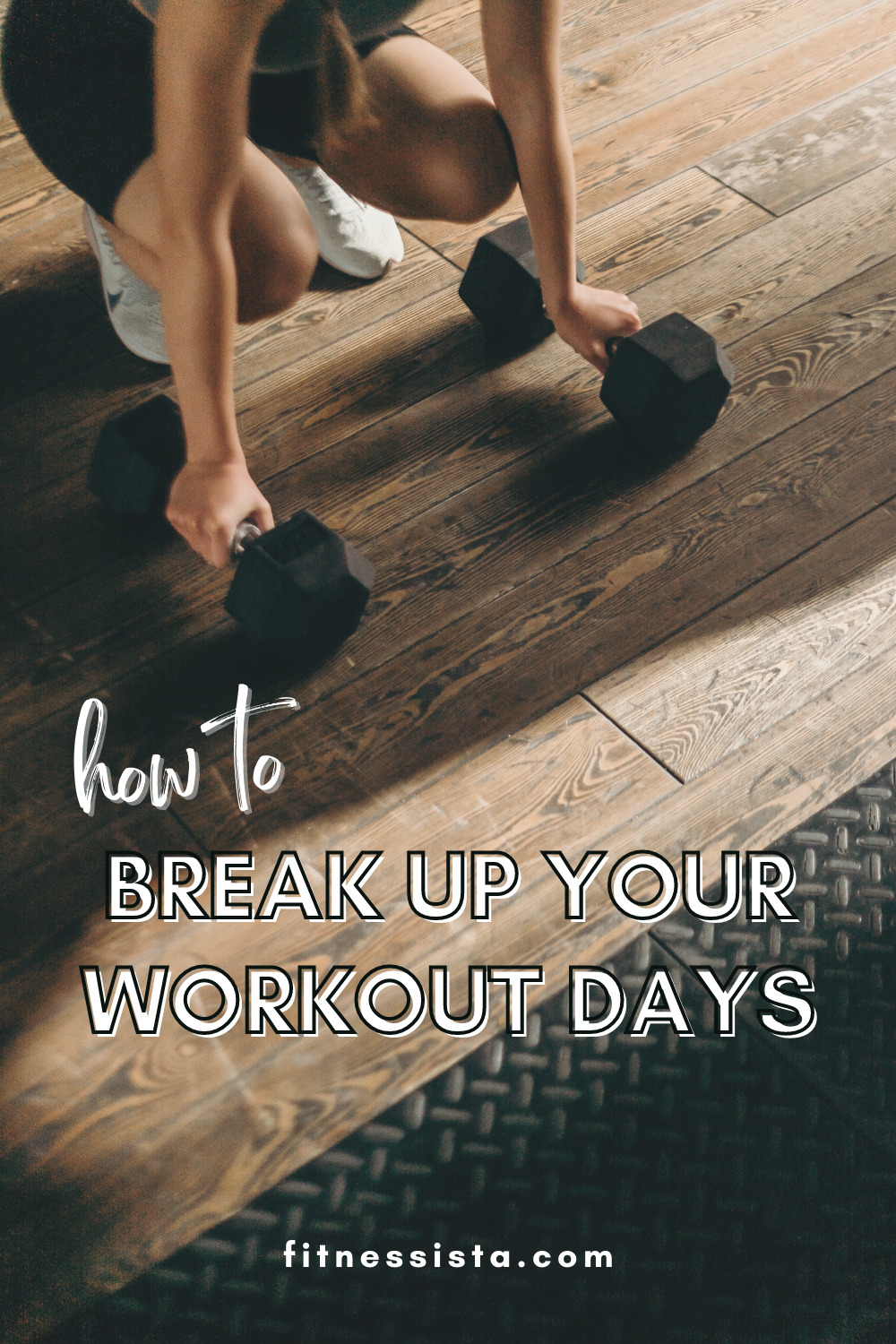Sharing some ideas how to to put your weekly plan together and break up your workout days to optimize performance and recovery!
Hi friends! How is the week going? I hope you’re having a lovely morning so far! I had a call with our amazing travel agent regarding spring 2023 travel (the best) and am putting the Fit Team workouts together for September. If you’d like to join us for Self Care September (focusing on workout nutrition and self care strategies), join us here! Anyone who signs up today will also receive a custom nutrition guide a thank you from me to you 🙂
For today’s post, I’m chatting about breaking up your workout days and how to do this strategically. I’m a big fan of split training throughout the week. It can help you strength different areas of the body, giving you enough time to recover, and also freedom to control the way you train. Today, I’m sharing practical tips to help my reader friends break up their workout days and get the most out of their training routine.
(Please keep in mind that while I’m a certified personal trainer, I’m providing general information for educational purposes. This is not medical advice. Always seek out the help of your doctor before starting or changing your fitness routine.)
Whole Body Split
This type of split involves a total body workout each time you train. The benefits of this type of training is that you’re able to use more fancy and *fun* compound-type movements, working multiple muscle groups at once, and due to peripheral action training, your heart rate may higher, which indicates a higher calorie burn during the workout. I like working total body for my beginner clients (focusing on bodyweight-only exercises first), and also my clients who have significant weight loss goals.
The downside of this type of training is that it may be harder to hit muscle fatigue, which encourages muscle growth, and that you shouldn’t ideally train your entire body two days in a row. I’d recommend alternating total body workouts with rest and cardio.
Upper / Lower Split
This is when you work your upper body one day (back, shoulders, chest, triceps, biceps), and your lower body on a different day (hamstrings, glutes, core, calves). The benefits of this type of training are that you’re able to strength train on consecutive days (upper body one day, lower body the following day), and you’re more easily able to add volume and load to a specific muscle group. This can encourage muscle development, which is the *toned and lean* look so many of us are after.
My personal favorite way to set up a split is upper body one day, lower body the following day, and a total body circuit on a different day. This is how I set up most of our Fit Team workouts, too.
4-Day Split
For your four-day split, there are a few different ways you can do this:
upper body, lower body, and two total body days
and antagonist or synergistic muscle training.
Antagonist muscle groups
This type of training involves working opposing muscle groups, like chest and back one day, biceps and triceps the following, hamstrings and calves, and shoulders and calves (they’re kind of on their own lol). This is especially effective for superset-style workouts, because you can move directly from one set to the next, allowing the opposing muscle group to rest. (When one of the antagonist muscles is contracting, the opposing muscle is stretching.)
The main benefit of this type of training is serious muscle-building capability. If you’re looking for gains, possibly try out this style of training.
Synergistic muscle groups
This is when you use agonist muscles (the ones that work together to perform a movement). An example of this would be:
shoulders, chest and triceps,
legs and core
back and biceps.
This is another one of my favorite ways to train, and another great way to build muscle. I would recommend this type of training for friends who want to see serious muscle definition, improve their metabolism, and have three days to strength train each week.
Workout Split Samples
Your workout split will depend on different variables, including the equipment you have access to use, your current training level, what you enjoy (!), and your fitness goals. The key here is to figure out how many days per week you want to strength train. I like to hit each muscle group at least twice per week (on non-consultive days or within the same workout), and make sure I have at least 1-2 days of full rest each week.
If you need help planning out your workouts for the week, join us in Fit Team! I also have a free PDF here on how to create your workout schedule and set up your plan. If you’re looking for personalized training plans, my 1:1 coaching application is here.
Have a wonderful morning and I’ll see you soon!
xoxo
Gina




